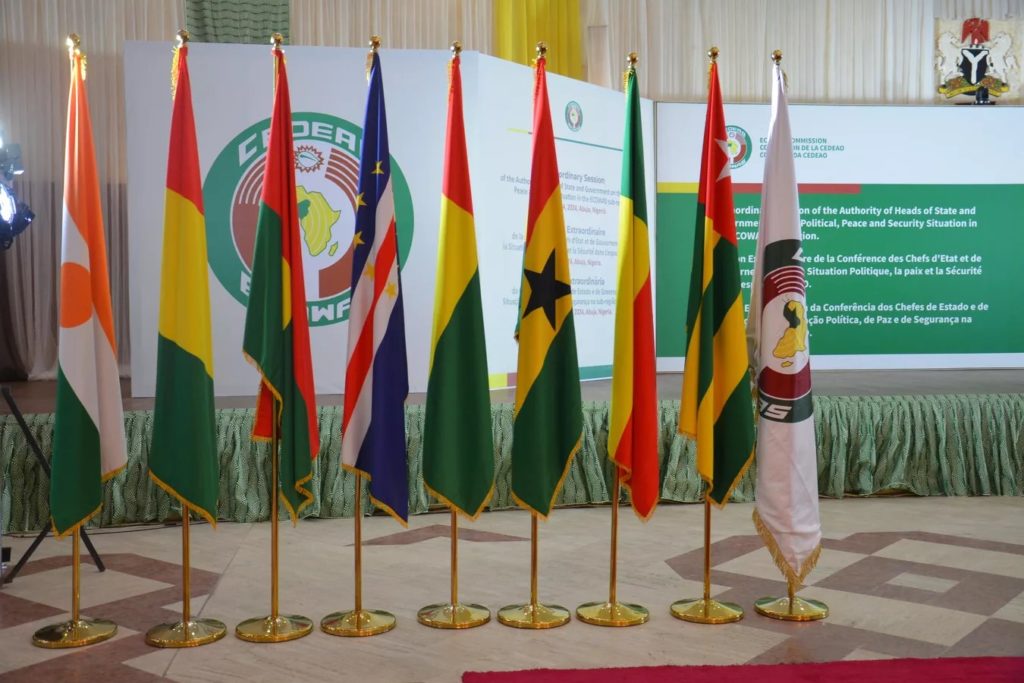Highlight 23/2024 – An Assessment Of Peacebuilding Initiatives In The Economic Community Of West African States (Ecowas) Region 2020-2022
Daniel Daran Crentsil, 13 June 2024

Considered one of the pillars of the African Economic Community, ECOWAS, since its establishment in 1975, has been at the forefront of promoting economic integration and fostering peace and stability across the region. It has also served to maintain regional peace, stability and security through the promotion and strengthening of good neighbourliness and the peaceful settlement of disputes among Member States. While economic integration was its initial goal, ECOWAS quickly realized the necessity of peacebuilding efforts to achieve this objective.
Boutros Boutros-Ghali’s 1992 UN report, “An Agenda for Peace” highlights four main areas of activity in peacebuilding encompasses preventive diplomacy, peacemaking, peacekeeping, and post-conflict peacebuilding. These efforts are crucial in preventing conflicts from escalating and in rebuilding nations torn by civil strife.
Peacebuilding efforts contribute to preventing, containing and resolving violent conflict, which is immensely costly and destructive not only for the states embroiled in conflict but also for their neighbours.
President Nana Addo Dankwa Akufo-Addo was elected Chair of ECOWAS Authority of Heads of State and Government between the period of September 2020 – July 2022 serving 2 terms as Chair of the regional bloc. Under his leadership, ECOWAS intensified its peacebuilding initiatives between September 2020 and July 2022. Various initiatives were undertaken, included those such as ECOWAS Mediation Missions and election observer missions.
Ahead of the Gambia’s Presidential elections in 2021, ECOWAS took proactive steps by deploying seventy-four observers for its Election Observation Mission (ECOWAS-EOM). The primary objective was to ensure that the elections were conducted in a peaceful atmosphere, thereby contributing to the consolidation of peace and security in the region.
In addition to the observer mission, ECOWAS provided further support to The Gambia through the operational deployment of the ECOMIG Mission and engagements with various country institutions. Furthermore, ECOWAS offered training sessions on Dialogue and Mediation for Peace Actors and other stakeholders within The Gambia. These actions underscored the significance that ECOWAS attaches to fostering peaceful electoral processes in the region.
In a proactive move towards facilitating peace and stability in Mali, a high-level delegation led by H.E. Goodluck Jonathan, former President of Nigeria and ECOWAS Special Envoy to Mali, embarked on an ECOWAS Mediation Mission in September 2021. This mission, in line with the recommendations of the ECOWAS Heads of State and Government meeting in Accra, Ghana, aimed at assessing Mali’s progress in its transition, particularly focusing on the elections which were slated that year in February 2022.
The ECOWAS Heads of State and Government had mandated this assessment during their Extraordinary Session on September 15, 2020. Beyond assessment, the delegation sought to lend support to the implementation of priority actions outlined in the Malian Government’s action plan.
ECOWAS has been proactive in deploying high-level mediation missions to countries such as Mali and Guinea in response to various challenges.
Aftermath
Despite these efforts by leaders of ECOWAS, challenges remain. Terrorism has gradually spread from the Sahel to coastal areas, posing a threat to countries like Ivory Coast, Benin, and Togo. Additionally, the rise in coup d’états in Mali, Guinea, and Burkina Faso has tested ECOWAS’s ability to maintain constitutional order.
President Akufo-Addo’s tenure saw decisive action in response to these challenges, with ECOWAS suspending the membership of countries affected by military takeovers and imposing sanctions including trade and financial embargos on the ruling military juntas. In response to some of these sanctions, Niger, Mali and Burkina Faso, three West African states, in a simultaneous joint statement, announced that they were withdrawing from the ECOWAS.
Ghana’s tenure at the helm of ECOWAS witnessed both commendable efforts in peacebuilding and sobering challenges. However, these have highlighted the fragility of political stability in the region and the need for ongoing vigilance and intervention. While the interventions of ECOWAS have been crucial in maintaining stability, ongoing vigilance and intervention are necessary to address the region’s complex security threats and uphold democratic governance.
Daniel Daran Crentsil, Highlight 23/2024 – An Assessment Of Peacebuilding Initiatives In The Economic Community Of West African States (Ecowas) Region 2020-2022, 13 June 2024, available at www.meig.ch
The views expressed in the MEIG Highlights are personal to the authors and neither reflect the positions of the MEIG Programme nor those of the University of Geneva.
